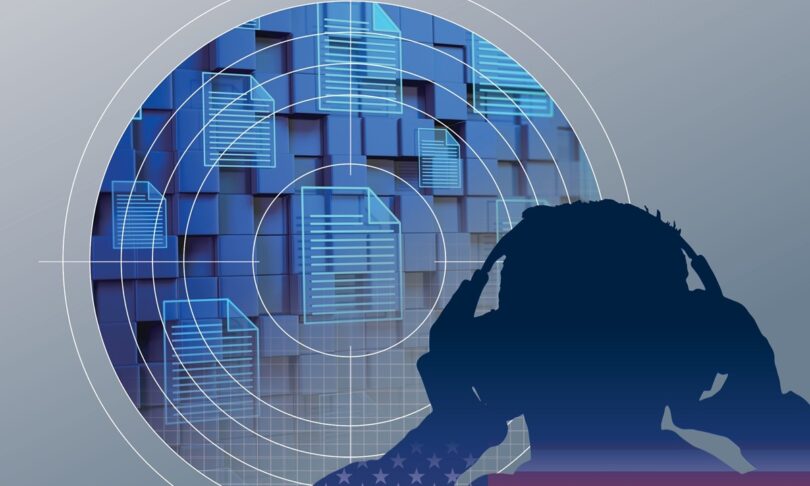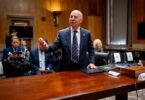Editor’s Note:
The leaked highly classified Pentagon documents in recent weeks have revealed American spying on not only its foes, but also allies. What kind of concerns might be raised in Australia which is considered as a loyal US ally? How will the leakage affect the “trust” between the US and its allies? Will the AUKUS deal be a blessing or a disaster for Australia? Global Times (GT) reporter Wang Zixuan talked to Robert Barwick (Barwick), research director for the Australian Citizen Party, over these issues as well as future China-Australia relations.
This is the third article of the series.
GT: Despite the leaked Pentagon documents, the US continues to make high-profile accusations of espionage against other countries. What do you think about this? What kind of concerns might be raised in Australia?
Barwick: I’m not surprised. They’ve done it before. Our media should be outraged, but they’ve dismissed it by saying “we know the Americans do that. They spy on us. It should be highly damaging.” But unfortunately, Australia is so subservient politically to the Americans that we’re not going to complain. I do note that the spying on South Korea has been greeted with much more alarm than on Australia.
Also, there’s been spying on the UN secretary general. I believe the US is deliberately trying to undermine the UN system anyway. That is very bad, and that’s kind of getting attention. But our political leaders have decided that we will go with the US all the way, whatever happens. That’s very alarming. I think we should change our approach as a country and how we deal with these things. We need to stand up to the US and countries like the UK when it’s in our interest to do so.
GT: Former US president Barack Obama made a public pledge in January 2014 that the US would not spy on the leaders of allied countries after Edward Snowden leaked information about the spy agency. Why does the US keep spying on its allies? How will this affect the “trust” between the US and its allies?
Barwick: It has destroyed trust. There shouldn’t be any trust. I would privately hope that the governments of these countries do not trust the US, but I’m afraid that publicly they won’t say that, and will try and sweep it under the carpet and that’s wrong.
This leak is an example. We should not tolerate this kind of spying on friends. It was terrible, but no one’s paid any price for that. Hopefully we can change the politics in Australia, so we can stop doing things like that.
GT: Australia’s defence force chief has labelled possible leaks of US intelligence documents as “potentially damaging.” In this way, will the AUKUS be a blessing or a disaster for Australia? What impact will US eavesdropping have on the AUKUS deal?
Barwick: I don’t think it will have any impact unfortunately. The frame of mind that took us into the AUKUS is the subservience to the US and the UK and paranoia about China, that hasn’t changed. You may get some people on the fringes who say this is wrong, and we should not be doing deals like AUKUS with a country like the US, but they’re not going to hold sway the people who negotiate the deal and the current government that has continued the deal. They are doubling down on it and they’re just not talking about the leak although it is damaging.
GT: 48 Australian politicians have demanded the US abandon Julian Assange extradition in an open letter. Does this mean that Australia has recognized the evils of US spying?
Barwick: There is a change in Australians, especially around specific cases like Assange, because Assange is the biggest contradiction to the rest of our rhetoric. When along with the US and the UK, we claim that we are the great democracies sticking together, we stand for human rights and peace. Yet we’ve allowed our own citizen to be persecuted by the UK and the US for exposing human rights abuses in the form of war crimes. He didn’t do anything wrong except exposing the truth.
The Australian people want to believe that our AUKUS alliance is the right thing to do. But if that was true, we shouldn’t be treating Assange that way. The 48 politicians who signed that letter are the most so far. It’s nowhere near a majority, but it’s growing. Hopefully, we’ll get to a point soon where the government decides and stands up to the US and the UK, and demand the release of Assange.
GT: Top South Korean security officials claimed that “considerable amount” of information in leaked Pentagon documents is fabricated, which seemingly tried to downplay the impact of this incident. Some countries said they can’t accept such moves, but most of them are basically verbal protests. Why don’t they take substantive actions? Is this likely to encourage more reckless spying of the US?
Barwick: After World War II, the UN has been a very important institution, it is not perfect, but every country is an equal member. Then we have the Security Council of five permanent members who have veto powers, and this arrangement has, in some cases, kept the peace. In other cases, it at least allowed the world to see that when the US invaded Iraq, it was an illegal thing and wasn’t backed by international law. So these multilateral arrangements have been very important.
Now, all countries have tried to build alliances and fight blocks. But when the US sets up a spying network, the Five Eyes — Australia, Canada, New Zealand, the UK, the US, we share our intelligence with each other and spy on each other’s citizens. Australian intelligence can’t spy on Australians, but American intelligence can spy on Australians and Australian intelligence can spy on Americans, then we share the intelligence with each other. But then when we actually go further and basically spy on all governments, it shows that we’re very fragile. We’re not confident in these alliances we have, which is interesting.
Even worse, when we take it to the UN and we’re undermined, because no one should be spying on the UN secretary general, it’s likely to cause really big consequences. Unless governments look at it that way and actually object quite forcefully to the US, they are gonna do it again, and they’ll keep doing it. But as you said, we did object last time, and Obama promised they wouldn’t do it. Aren’t they still doing it anyway? So at what point do we say enough is enough? I think I’m less concerned about America or South Korea, but I’m more concerned about the UN.
GT: The leak of classified documents also provides a glimpse into how the US assesses the policies of its allies, and how the US exerts its influence to change those policies. What do you think Australia should do to defend its national security and interest?
Barwick: Your best friend is honest with you, and your best friend is the person who can tell you off and say you are doing the wrong thing. If we were truly America’s friend and ally, right now, we would be standing up and saying “cut this out, this is wrong! Stop pursuing this path, stop spying on people, stop trying to build alliances to push war plans against countries like China, stop using Ukraine as a proxy in a war against Russia.” That’s what Australia should do as America’s friend.
We want our world to be friends. One of the things that impresses me about China is that when China comes up with ideas like the Belt and Road Initiative, you can find everybody to join, including the US. China is truly inclusive. Everybody should collaborate and be friends with each other.
GT: What do you think of Australia-US relations and Australia-China relations in current tensions and in near future?
Barwick: I think it’s very wrong that the US is trying to hang onto its status as the superpower, the thought it upholds in a unipolar world, and now it is wrong and impossible. A multipolar world is already here. There is no longer a sole superpower. So America is trying to hang onto a fiction.
Now, that’s bad enough. What’s worse is we are aiding and abetting America in doing that. We’re not allied with America’s interest, because what America is doing is not in America’s interest. The American people are not benefiting from American policy. It was a certain faction of America’s leadership that are pursuing this. They are the worst people in the world in my view. They are the people who gave us the permanent wars. Our country is allying with them in their world view, and they would happily use us as a proxy in a war against China, like they’re using Ukraine as a proxy in a war against Russia. They don’t care how many Australians would die in such a war. That’s their attitude. That’s their mentality. We are going along with it, and that is bad.
The current Australian government does have a policy of wanting to stabilize the relationship with China and they have come to that. The Chinese government is happy with the progress so far and is keen to continue. Every time there’s a good sign, there’s also a political backlash in Australia from the people who don’t want that. More often than not, our government will bow to that backlash. So it’s like one step forward, two step back, but at least there’s one step forward there.
We should value the people who prefer a peaceful path, including the people who are involved in the trade with China, which is immensely beneficial to Australia. One of our state premiers Mark McGowan is visiting China right now and he represents the state of Western Australia. That’s really good to our friendship.
Courtesy: globaltimes







